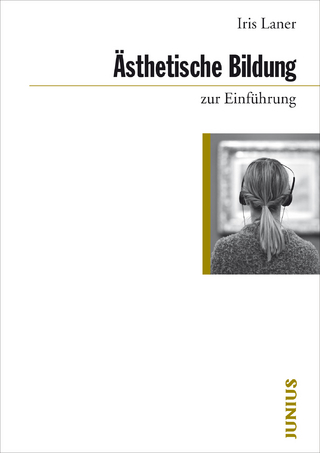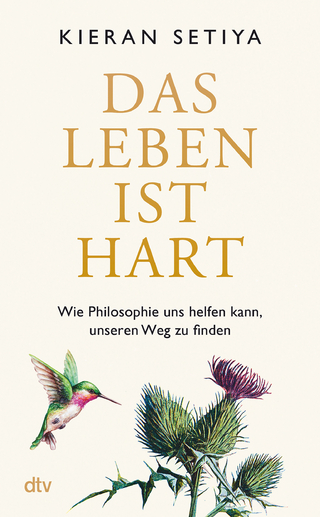
Information and the World Stage
ISTE Ltd and John Wiley & Sons Inc (Verlag)
978-1-78630-138-3 (ISBN)
The author presents an overview of the place of information and communications in our time, explaining some reasons for focusing on these two notions. All areas of knowledge are concerned: philosophy, social sciences, biology, medicine, as well as physics, the so-called “queen of sciences”, from quantum to cosmos.
This book is intended for scientific scholars as well as those with just a general interest who are anxious to understand the major evolutions that are taking shape in fields of knowledge in the 21st Century.
Bernard Dugué, École Nationale Supérieure des Mines de Saint-Etienne, France.
Foreword ix
Introduction xiii
Chapter 1 A Presentation of the Paradigm of Information in the 21st Century 1
1.1 After technology, the philosophy of information 1
1.1.1 Information, issues and paradigms of the 21st Century 1
1.1.2 Philosophizing means being concerned 3
1.1.3 Technology affects us 4
1.1.4 Information affects us 6
1.1.5 Where can we situate a philosophy of information? 8
1.1.6 The two philosophies, technology and information 10
1.1.7 What is information? 11
1.1.8 Universal thinking 14
1.2 CRISPR-Cas9: from mechanism to information in biology 15
1.2.1 Brief review of a significant scientific discovery 15
1.2.2 From Monod’s biology to information biology 17
1.3 Toward a theory of the information act 22
1.3.1 Image act, the power of images 22
1.3.2 Thoughts about Horst Bredekamp’s study, the theory of the image act 23
1.3.3 Language and image resonances 28
Chapter 2 Communication Influences the “Mechanisms” of the Living World and Society 31
2.1 Philosophical approach to cancer through information and immunity 31
2.1.1 A note on a potential dead end in the research on cancer 31
2.1.2 An alternative hypothesis: Darwinian carcinogenesis 33
2.1.3 Leaving the current paradigm behind 34
2.2 Fanaticism and fantasies, a “pathology” of information and its interpretation 36
2.3 Scientific communication and modernism in contemporary societies 39
2.3.1 Distinguishing between technological and mediated activity through social norms and subjects 40
2.3.2 Destructuring the subject and semantic mediations 41
2.3.3 Scientific contamination of ideology and depoliticization of society 42
Chapter 3 Form, Information and Content 45
3.1 Form and content, an old story that still affects our existences 45
3.2 Ontology of form and content 48
3.3 Brief remarks about a type of philosophical and scientific research 51
3.3.1 Structure and order of Content: logic and/or structure of form 51
3.4 Ontology of form and Content, ending the issue of machines before machines end us 53
3.5 The ontological difference and the path toward Being 55
3.6 The three colors of Being and modernist perdition 59
3.7 Brief notes on the oblivion of Content as ontological difference revealed by decline 63
Chapter 4 Mass, Charge, Gravity and Rays: Distinguishing Between the Two Kinds of Universal Physics 69
4.1 Masses, arrangement and mechanics 69
4.2 Electric charge, spin and dynamics of information 71
4.3 Light-like and time-like geodesics in relativistic cosmology 74
4.4 Overview of the dynamics of arrangement and information 77
4.5 Einstein and the question of the field in physics 80
4.6 The cosmological alternative in the 21st Century 82
4.6.1 Provisional conclusion: what kind of physics for the 21st Century? 83
Chapter 5 From Objects to Fields, Reinterpreted Contemporary Physics and the Path Toward Quantum Gravity 85
5.1 Fields, arrangements, communications 85
5.1.1 Cosmology of communications 87
5.1.2 Cosmology of arrangements 88
5.2 Einstein’s treatment of the hole argument 90
5.3 Quantum gravity, the greatest scientific challenge of the 21st Century 92
5.3.1 From gravitation to entanglement 92
5.3.2 Quantum gravity elaborated as physics of information 96
5.3.3 A digression about the Microscope mission and the notion of gravity-quantum geodesic 101
5.3.4 Quantum gravity, a way of conceiving matter, and the Logos of the universe 105
5.4 Do gauges reveal the secrets of the universe? 107
5.5 The universe as stage and theater of animated objects 112
5.5.1 Overview, the actors and the stage 113
5.6 Rethinking matter: a summary first glance 116
5.7 A second summary view of a universal type of physics: mass, charge, spin, photon 118
Chapter 6 Physics in the 21st Century in Relation to Information and Arrangements 121
6.1 Action and information, digressions about philosophy and contemporary physics 121
6.2 Seeing, perceiving, receiving: Leibniz and Newton 125
6.3 Postmodern philosophy of nature and the meaning of existence 129
6.4 A universal outline, from quanta to the cosmos, information and arrangement 131
6.4.1 The origin of the two kinds of physics 131
6.4.2 The two cornerstones of physics in relation to communication and arrangement 131
6.5 Time and stage: from quanta to the universe 135
6.5.1 Aristotle, Newton and Einstein 135
6.5.2 Relativity, of course, but so many mysteries! 137
6.5.3 Time and stage 139
6.6 Information, memory and order 142
6.6.1 Dialectical relationships between information and arrangement in the universe and the living world 142
6.6.2 Two kinds of memory, action and perception 142
6.6.3 Arrangement, perception and information in nature 143
6.7 Some connections between science and the metaphysics of philosophers 144
6.8 A new paradigm, information in communication, arrangement and transformation 147
6.8.1 To enter the age of information 148
6.9 Overview: from quanta to the gravity-quantum apparatus and the universal stage 150
Conclusion 155
Postface 159
Bibliography 161
Index 163
| Erscheinungsdatum | 01.02.2018 |
|---|---|
| Verlagsort | London |
| Sprache | englisch |
| Maße | 158 x 239 mm |
| Gewicht | 408 g |
| Themenwelt | Geisteswissenschaften ► Philosophie |
| Naturwissenschaften | |
| ISBN-10 | 1-78630-138-5 / 1786301385 |
| ISBN-13 | 978-1-78630-138-3 / 9781786301383 |
| Zustand | Neuware |
| Haben Sie eine Frage zum Produkt? |
aus dem Bereich


